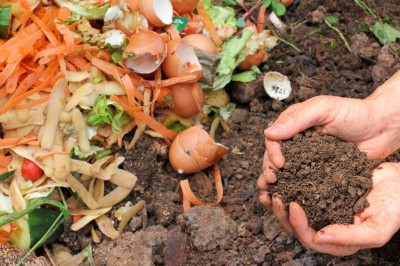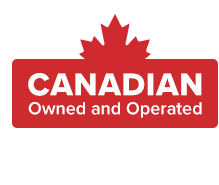Everything You Need to Know About Composting In 2024

Home composting should be a part of every avid gardener’s lifestyle. It’s an effective way to improve the quality of the soil in your ornamental or vegetable garden while having fun soiling yourself too.
At the same time, you are saving money and recycling natural resources, easing the burden on landfills and municipal waste hauling services.
At its simplest, compost is decayed organic matter. Given moisture and enough time, all-natural materials eventually break down. As long as it is free of harmful chemicals and pathogens, broken down, composted material helps to aerate triple-mix soil and provide nutrients.
You can, of course, buy bags of compost, but you should also try your hand at calculating the amount of compost you need and then producing your own.
Make or Buy a Compost Bin
You can buy compost bins of all sizes and varieties. They range from basic models, essentially just a large container, to deluxe models that tumble or rotate and have lots of hatches for adding material and removing compost. Do-it-yourself types may want to make their own compost bin.
With some lumber and heavy-duty wire mesh fencing, it’s easy enough to build four sides with a hatch or lid on top. One side should be removable or have a gate at the bottom to scoop out finished compost. Make sure that openings are small enough to keep out animals.
Year-Round Composting
Don’t stop composting just because the weather gets cold in the winter. The center of a compost pile is much warmer than you think; bacteria will be continually working their magic in all but the most frigid temperatures.
Keep adding material to the compost pile, even if snow and ice make it too difficult to stir or mix. It’s easy enough to keep a large bowl, bucket or a purchased countertop compost pail in your kitchen and empty it outside every day or two. Some commercial countertop bins have charcoal filters to eliminate odors.
Composting Do’s and Dont’s
Follow these helpfully handy composting tips, and you'll become an expert composter in no time flat:
- Do compost all of your vegetable scraps, coffee grounds and eggshells.
- Don’t add meat scraps; you’ll probably attract animal pests and there is a chance of lingering pathogens.
- Do add a mixture of materials: food scraps, leaves, grass clippings, and very small twigs. A blend of “green” and “brown” or “wet” and “dry” materials work best.
- Don’t add larger branches; they are slow to break down and make it difficult to turn the pile.
- Do stir your pile, turning it over and mixing the ingredients every couple of weeks with a shovel or pitchfork.
- Don’t stress out if you forget!
There are both passive and active approaches to composting.
- Active composters stir their compost every week or two, are careful to add the right mixture of ingredients and usually end up with usable compost much sooner.
- Passive gardeners just throw everything into the compost bin and leave it. That approach works too; it just takes a little longer.
Now’s the perfect time to compost with Legends Landscape Supply
Composting is one of the simplest things you can do to help both your home landscape and the local environment. Your lawn will love a light top dressing of your homemade compost in spring or fall, and new plants will grow much better with some compost mixed in at planting time. Contact us today for the supplies you need to get started.
For more information to help you start, complete or maintain your landscape project, take a look at some of the other articles in our blog today.
ARTICLES YOU MIGHT LIKE
- Retaining Walls 101: Everything You Need to Know and More
- 5 Amazing Benefits of Outdoor Heating and Snow Melting Systems
- Meet Legends Landscape Supply in Burlington


 LANDSCAPE PROFESSIONALS
LANDSCAPE PROFESSIONALS